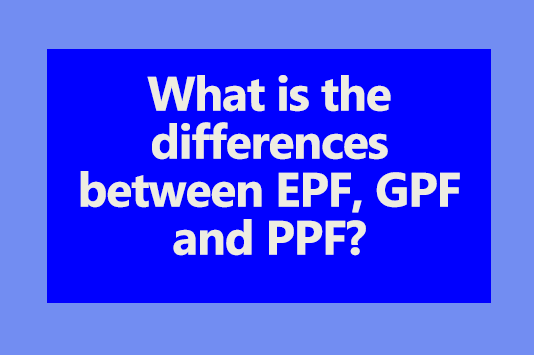Conduct and Discipline Rules-Glossary H to N
Habitual late attendance/absence: Unless there are particularly extenuating circumstances requiring consideration on their merits, habitual absence or habitual late attendance will mean recurrence of the offence or more than six occasions within a period of three months from the date of his first occurrence. This will apply to Industrial Employees also.
Hearsay evidence: In department inquiries, the hearsay evidence is admissible. “All materials, which are logically probative for a prudent mind, are permissible. There is no allergy to hearsay evidence provided it has some reasonable nexus and credibility.”
Honourable acquittal: The concept of ‘honourable acquittal’ and ‘full exoneration’ are unknown to criminal law. Courts are only concerned to find whether the prosecution has succeeded in proving beyond a reasonable doubt the guilt of the accused. As in court judgments, the use of expression “exoneration on merits” and the like may not be found, it is left to the authority ordering reinstatement to determine from the circumstances of each case whether the acquittal should be taken to mean exoneration or merits or not.
Human rights means the rights relating to life, liberty, equality and dignity of the individual guaranteed by the Constitution or embodied in the International Covenants and enforceable by courts in India”.
Illegal strike: The question whether a strike or lock out is legal or illegal does not present much difficulty for resolution since all that is required to be examined to answer the question is whether there has been a breach of the relevant provisions. A strike may be illegal if it contravenes the provisions of Sections 22, 23 or 24 of the I.D. Act or of any other law or of the terms of employment depending upon the facts of each case.
Immunity from disciplinary action: As per the general principle, bona fide exercise of quasi-judicial functions cannot be subject matter of disciplinary action. However, In Union of India v. K.K. Dhawan Supreme Court has ruled that disciplinary action can be taken in the following cases:
Where the officer had acted in a manner as would reflect on his reputation for integrity or good faith or devotion to duty;
If there is prima facie material to show recklessness or misconduct in the discharge of his duty;
If he has acted in a manner which is unbecoming of a Government servant;
If he had acted negligently or that he omitted the prescribed conditions which are essential for the exercise of statutory powers;
If he had acted in order to unduly favour a party;
If he had been actuated by corrupt motive, however small the bribe may be because Lord Coke said long ago “though the bribe may be small, yet the fault is great”.
The Apex Court added that the above catalogued are not exhaustive and that for a mere technical violation or merely because the order is wrong and the action is not falling under the above enumerated instances, disciplinary action is not warranted. The Court further cautioned that each case will depend upon the facts and no absolute rule can be postulated.
Integrity: Rigid adherence to a code of behaviour, probity.
Inquiry Officer: An authority appointed under Rule 14 (2) of CCS (CCA) Rules or under the provisions of Public Servants (Inquiries) Act, 1850 to inquire into the truth of any imputation of misconduct or misbehaviour against a Government servant.
Jurisdiction: Power or authority in general.
Jurisprudence: It is the name given to a certain type of investigation into law, an investigation of an abstract, general and theoretical nature which seeks to lay bare the essential principles of law and legal systems.
Law: The word “law” has to be given general and wide meaning to include the rules framed under constitutional provisions (e.g. under Art. 309). Rules framed under Art. 309 of the Constitution are legislative in character and they are laws for all purposes.
Leading question: A question suggesting the answer, which the person putting it wishes or expects to receive.
Leading questions are not permitted in examination or re-examination of witnesses in departmental inquiries. However, they are permissible in cross examination.
Legal Practitioner: One who is engaged in the exercise or employment of legal profession; a person who practises law, such as an advocate, vakil or attorney.
Legal Practitioner-assistance of- in departmental inquiry: “A delinquent Government servant in a departmental inquiry may take the assistance of any other Government servant posted in any office either at his headquarters or at the place where the inquiry is held, to present the case on his behalf, but may not engage a legal practitioner for the purpose, unless the Presenting Officer appointed by the disciplinary authority is a legal practitioner, or, the disciplinary authority, having regard to the circumstances of the case, so permits.”
Legal Practitioner in the context of departmental inquiry: Legal Adviser or lawyer is for this purpose somewhat liberally construed and must include “whoever assists or advises on facts and in law must be deemed to be in the position of a legal adviser.” In the last analysis, a decision has to be reached on a case to case basis on the situational particularities and the special requirements of justice of the case.”
Mandatory: Where some thing is required to be done and consequences of failure to do so are also provided then it is known as mandatory.
Master servant relationship: Master servant relationship with State and holder of civil post is indicated by the State’s right to select and appoint the holder of the post, its right to suspend and dismiss him, its right to control the manner and method of his doing the work and the payment by it of his wages or remuneration. A relationship of master servant may be established by the presence of all or some of these indicia, in conjunction with other circumstances and it is a question of fact in each case whether there is such a relationship between the State and the alleged holder of a post.
Memorial: A statement of facts forming the basis of or expressed in the form of a petition to a person of authority, a government etc.
Misconduct: It is the action or inaction of a Government servant which is in violation of a rule of conduct, written or unwritten. It is conduct incompatible and inconsistent with the faithful discharge of duties. Whatever conduct of the civil servant is regarded as being contrary to an ideal master servant relationship between the two may be regarded as a lapse on the part of the civil servant and may be considered to be a misconduct in varying degrees.
Moral Turpitude: Moral Turpitude is an expression, which is used in legal as also societal parlance to describe conduct, which is inherently base, vile, depraved or having any connection showing depravity.
Natural justice is the justice based upon the innate moral feeling of mankind.
Negligence: Want of attention to what ought to be done or looked after; lack of proper care in doing something; omission to do something which a reasonable man, guided upon the considerations which ordinarily regulate the conduct of human affairs, would do or doing something which a prudent and reasonable man would not do.
Nemo debet bis vexari means that a man must not be put twice in peril for the same offence. He can plead as a complete defence his former acquittal or conviction. This rule of natural justice is embodied in Article 20 (2). The Article guarantees immunity against ‘prosecution and punishment for the same offence ‘ for a second time.
Nemo debet esse judex in propria causa means that no one shall be a judge in his own case or that the tribunal or the quasi-judicial authority which adjudicates the dispute must be impartial and without bias.
Nemo punitur pro alieno delicto: No one is punished for the fault of others.
Non-employment certificate: A certificate to the effect that he was not engaged in any other employment, business, profession or vocation to be furnished every month in prescribed form by a suspended employee for receiving subsistence allowance.
Notice: A formal written announcement.
Notice for termination of services of a temporary Government servant: For the termination of services of a temporary employee, either by the employee himself or by the appointing authority, the notice to given is of one month. Without giving this notice or by giving a shorter notice also, the services can be terminated. Then the Government servant shall be entitled to claim a sum equivalent of pay plus allowances for the period of the notice or for the period by which the notice falls short of one month.
Notification or Public Notification shall mean a notification published in the gazette of the State or the Central Government and the word ‘notified’ shall be construed accordingly.
Notification means a notification published in the Official Gazette.
No work no pay: Deliberate abstention from work, whether by resort to strike or go slow or any other method, legitimate or illegitimate, resulting in no work for the whole day or days, will entitle the management to deduct, pro rata or otherwise, wages of the participating workmen notwithstanding absence of any stipulation in the contract of employment or any provisions in the service rules, regulations or Standing Orders. In case of such undisputed mass misconduct, deduction of wages will not require disciplinary proceedings. Amount of deduction of wages will depend on facts and circumstances-Payment of Wages Act, 1936 Sections 7 (2) (b)9 and Mere physical presence in office is not enough; employees must perform work for payment of wages.
the words from O to be continued…..

